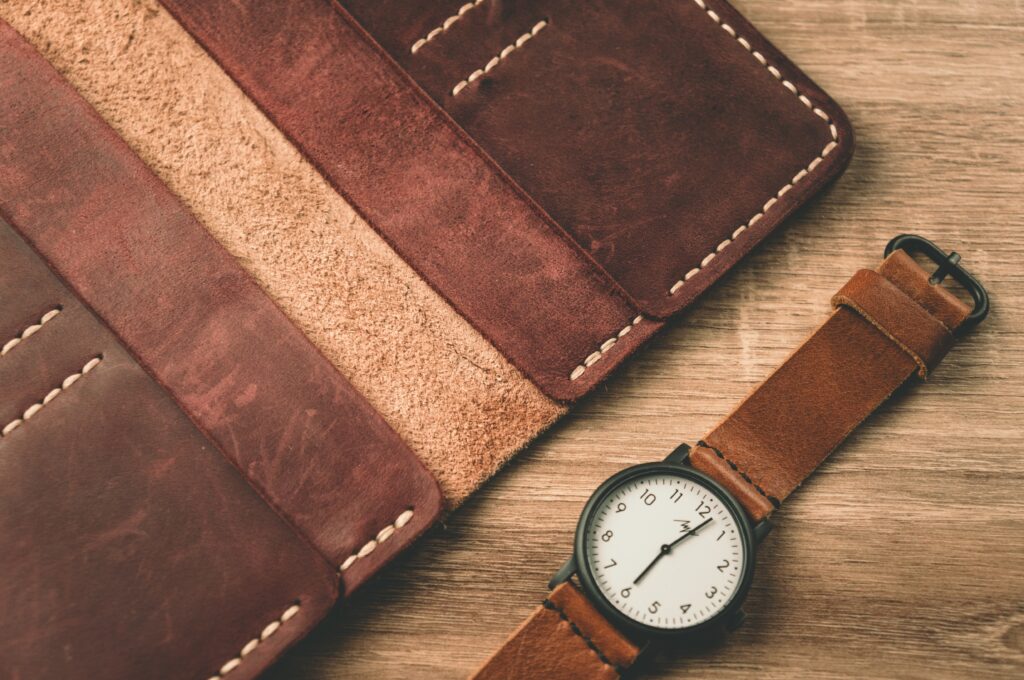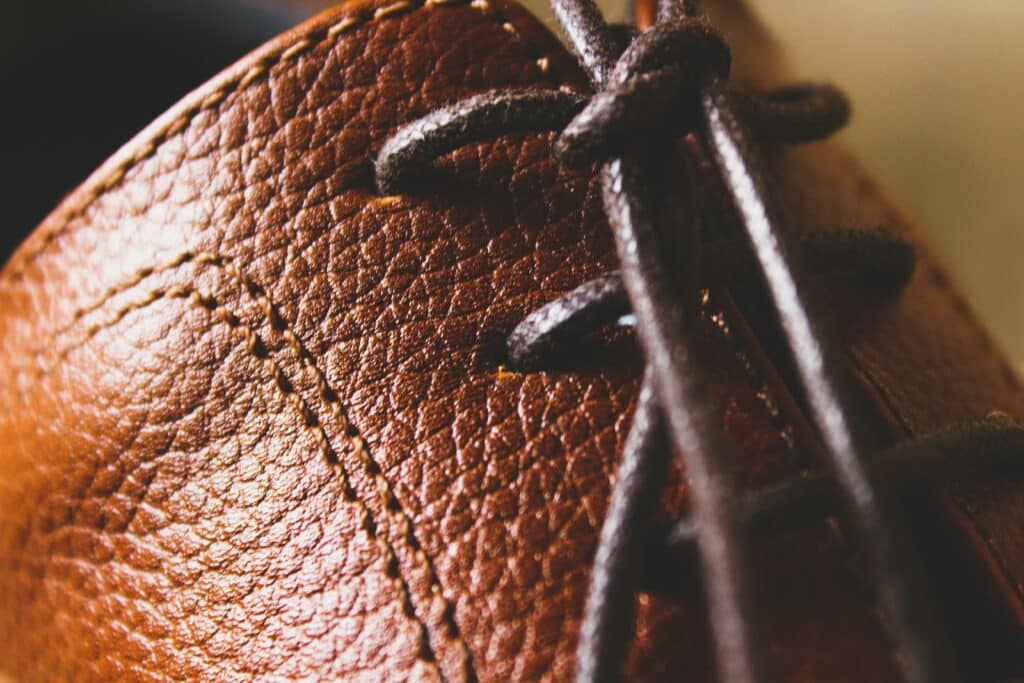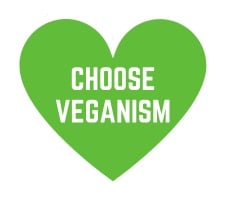
Whether you enjoy a vegan, vegetarian, pescetarian, or meat-based diet, there is one thing that we can all agree on: veganism is fantastic for both people and the planet. Requiring less land, fewer resources, and producing vastly less greenhouse gas emissions, the carbon footprint of a vegan diet is as much as 60% smaller than a meat-based one. Despite that, there is one topic that divides the vegan community.
Leather. Or, more specifically, vegan leather.
Although, in theory, vegan leather seems like a great alternative to animal fabrics, this is not always the case. In an attempt to cut costs and maximise profits, fashion brands are designing faux leather products using artificial components such as polyurethane and other plastics. These artificial components are often highly toxic to people and the environment, prompting many to question the ethics of producing such products.
Here’s everything you need to know about vegan leather and why it’s dividing the vegan community.
The Problem With Leather
Since leather is an animal product, the vast majority of vegans consider it a co-product of cow farming. While cows are primarily farmed for meat or dairy products, they provide further value for the leather trade.
Since cows generate approximately 150 billion gallons of methane every day, leather is a contributing factor to global warming. Furthermore, the process of making leather requires a lot of water, with a pair of leather boots taking 12,370 litres of water to produce. To give you something to compare it to, it takes 2,494 litres to produce a cotton t-shirt.
The Vegan Leather Alternative
Vegan leather is designed to imitate the look, feel, and texture of real leather, providing a cruelty-free, environmentally-friendly alternative to animal products.
What is Vegan Leather Made Of?
Vegan leather can be crafted from a variety of materials, each offering its own unique benefits. Some of the most common materials used in vegan leather production include:
Plant-based Materials
Plant-based materials make for the best vegan leather products. Vegan leather options can be made from pineapple leaves (Piñatex), apple peels, cork, and mushroom-derived leather. These innovative materials offer a more sustainable and durable alternative to plastic-based synthetics.
Polyurethane (PU)
This type of vegan leather is made by coating a fabric backing, typically polyester or cotton, with a layer of polyurethane. PU leather is known for its soft texture, durability, and water resistance.
Manufacturing polyurethane (PU) fabrics is an energy-intensive process that exacerbates the climate crisis, making it an unsustainable and highly problematic alternative to leather.
Polyvinyl Chloride (PVC)
Also known as vinyl, PVC is another popular material used in vegan leather manufacturing. It is created by applying a PVC coating to a fabric base. PVC leather is known for its durability and resistance to wear and tear.
Containing several harmful chemicals, PVC is highly dangerous to human and animal health. PVC manufacturers are reported to have higher cancer rates due to exposure to these chemicals.

Is Vegan Leather Durable?
There’s a reason leather is so popular: it’s highly durable and lost-lasting. Although vegan leather may not have the same level of durability as genuine leather, advancements in technology have led to significant improvements in the strength and longevity of plant-based leathers. High-quality vegan leather products are designed to withstand regular use and can be as durable as many traditional leather items.
Will Vegan Leather Last?
The longevity of vegan leather products depends on various factors, including the quality of the material, the construction of the item, and how well it is cared for.
With proper maintenance and regular care, vegan leather items can last for a significant period. It’s important to follow the manufacturer’s guidelines for cleaning and maintenance to ensure the longevity of your vegan leather products.
Additionally, choosing high-quality vegan leather products from reputable brands can increase the chances of their lasting durability.
Second-Hand Leather
Another alternative to vegan leather is to buy leather products second-hand. This option is a little contentious, with many vegans arguing about the ethics of buying and wearing leather products full stop.
On one hand, vegans argue that those who continue to buy and wear leather endorse animal cruelty through personal influence and style. They also argue that wearing any animal product – regardless of its new or used status – supports the production of these products in the first place.
Other vegans argue that purchasing second-hand leather products helps to reduce fast-fashion production and ease overconsumption by investing in durable pieces that will last many years as opposed to wear-once fashion pieces that crumble in the wash.
What’s more, many of those who transition to veganism later in life argue that it makes sense to keep leather products that they already own to reduce unnecessary waste.

Vegan Leather vs Real Leather
Although a cruelty-free alternative to its animal counterpart, vegan leather is not always a sustainable or environmentally-friendly option.
We recommend looking for high-quality plant-based vegan leathers which are durable and eco-conscious. With proper care, vegan leather products can have a lasting lifespan, making them a viable choice for those seeking ethical and eco-friendly fashion options.
What’s your stance on vegan leather? Let us know in the comments.
